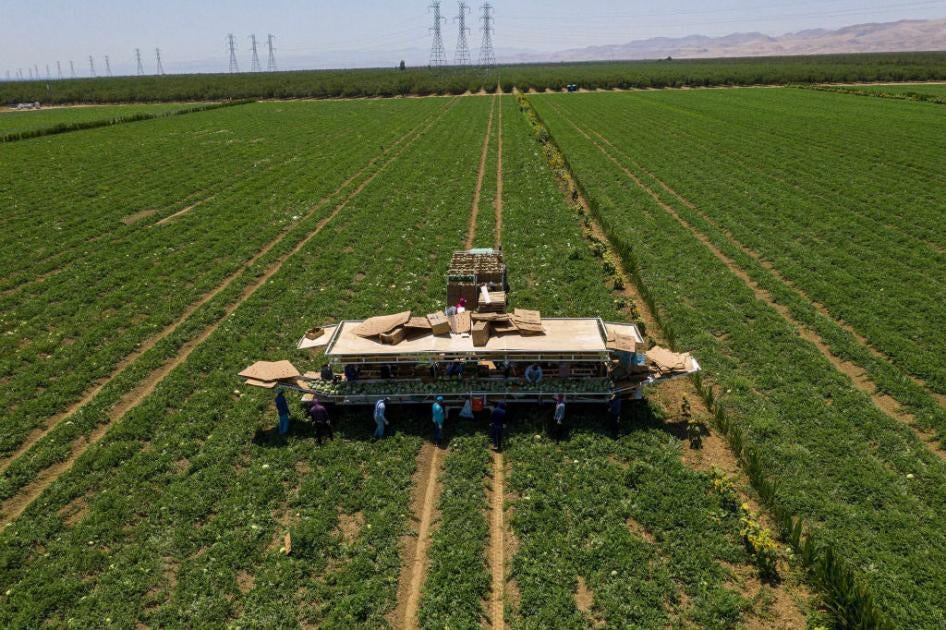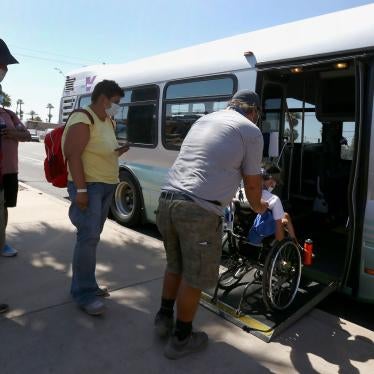The administration of US President Joe Biden announced yesterday a major interagency initiative to respond to the impacts of extreme heat in the United States. This effort, which closely follows the hottest month ever recorded on Earth, will seek to develop the first-ever federal heat standard to protect workers.
Extreme heat – exacerbated by climate change – has been linked to almost half a million deaths globally every year. Human Rights Watch has documented the impacts of extreme heat on at-risk populations including children, older people, people with disabilities, pregnant people, migrants, and farmworkers. Also at high risk of heat-related illness or death are those living in poverty or institutions, among other marginalized groups.
In the United States, heat kills more people than any other type of extreme weather. In June alone, during the heatwave in the Pacific Northwest, states reported hundreds of deaths and thousands of emergency room visits due to heat-related illness. Scientists determined that a heatwave this intense would have been virtually impossible without climate change.
At particular risk of climate-induced heatwaves are the millions of people in the United States who are exposed to extreme heat in their workplaces. In the US, essential jobs with high exposure levels – like farm work – are predominantly held by Black and brown workers. To better protect outdoor laborers, the Biden administration’s plan seeks to develop a workplace standard on heat.
Moreover, the plan will include cooling assistance for households and communities, and will establish a heat-specific working group to engage stakeholders and inform ongoing initiatives.
As part of the strategies outlined in the plan, the Biden administration’s approach to extreme heat should ensure that cooling benefits extend to people living in institutions such as nursing homes, and that the workplace heat standard includes even stronger protections for pregnant workers, who are particularly at risk. It should include reforms to harsh border enforcement policies that drive migrants into dangerous terrain and make them vulnerable to heat impacts, and include consultations with representatives from the most at-risk and impacted communities, including people with disabilities, to explicitly address their situations.
This new approach to extreme heat is a testament to the persistence of the grassroots organizations that pushed for it. The Biden administration should now take the next step to protect against the impacts of extreme heat by making good on their plans to drastically reduce US greenhouse gas emissions.










